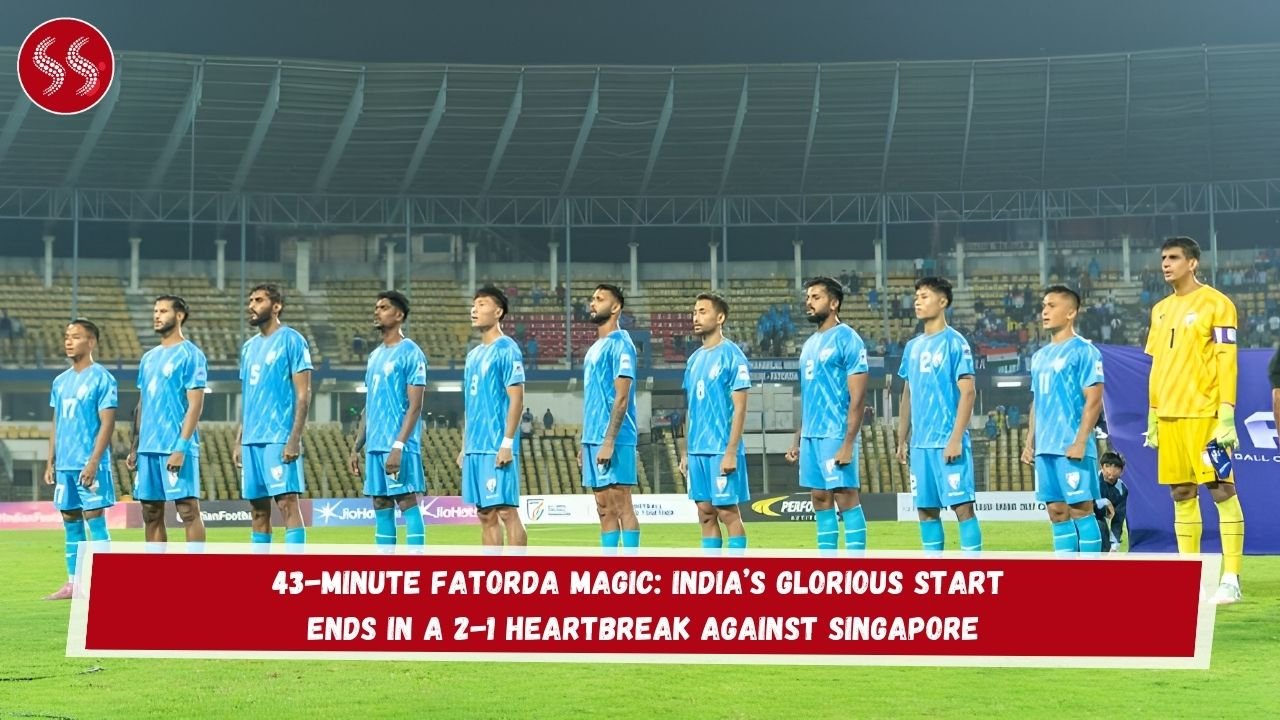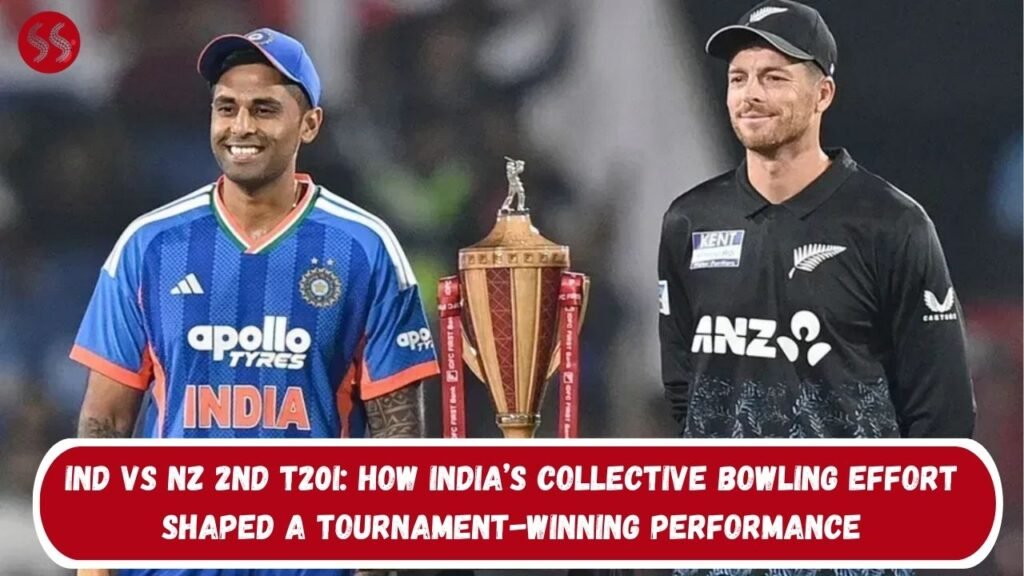For 43 unforgettable minutes at the Fatorda Stadium in Madgaon, Indian football looked like it was living a dream, a true 43-Minute Fatorda Magic moment. Every pass, every press, and every shot carried belief. Lallianzuala Chhangte’s thunderbolt goal summed up the spirit of the 43-Minute Fatorda Magic, as India dominated Singapore with fearless attacking football.
Coach Khalid Jamil had promised attacking intent, and for that spell, India delivered just that. The pressing was unrelenting, with Singapore unable to build from the back. Mahesh Singh and Apuia worked in perfect rhythm, and Apuia’s triple dummy followed by a trivela pass added to the beauty of the Fatorda Magic.
Chhangte’s goal came from that intense pressure, a misplaced pass, a quick recovery, and a strike that flew into the net. The fans at Fatorda roared, witnessing the 43-Minute Fatorda Magic unfold before their eyes. It felt like a new era for Indian football, one filled with flair, control, and confidence. But as in all magical moments, reality was waiting to strike.
READ MORE:
Singapore Fight Back as 43-Minute Fatorda Magic Fades

Once Singapore settled, the rhythm of the Fatorda Magic began to fade. Gavin Lee’s men adjusted smartly, led by the brilliant Song Ui-young, who exploited the spaces left by India’s high-pressing midfield. A lucky bounce fell to Glenn Kweh, who calmly assisted Song to level the score. Suddenly, the confidence of the Fatorda Magic turned into doubt.
The second half saw Singapore take control. They replaced left-back Amirul Adli and brought in striker Ilhan Fandi, pushing the game into an open, end-to-end battle. The Fatorda Magic that once belonged to India now belonged to Singapore. Their attacks had purpose and structure, while India’s play became rushed and uncertain.
Ikhsan Fandi then tore through India’s defence, fed Shawal Anuar, and his clever cutback found Song again. The finish — a rocket into the roof of the net — ended the Fatorda Magic for good. With that goal, Singapore led 2-1, and India’s structure collapsed completely.
Khalid Jamil threw on extra attackers, hoping to recreate the Fatorda Magic, but chaos replaced control. Crosses missed targets, shots were wild, and composure vanished. After the match, Jamil accepted full responsibility, admitting that defensive lapses and loss of focus cost them the game. His reflection was simple but telling: “I like defending more; when we attacked, we lost.” That line marked the end of the Fatorda Magic dream.
Searching for Hope Beyond the 43-Minute Fatorda Magic
India’s exit from Asian Cup qualification is a major setback. The Fatorda Magic showed what this team is capable of, but inconsistency remains a major issue. Jamil pointed out that players lacked match practice due to the domestic league’s inactivity, a key reason why India couldn’t sustain the 43-Minute Fatorda Magic beyond the first half.
Off the pitch, Indian football faces its own battles. Even hours before the game, the All India Football Federation (AIFF) was locked in constitutional disputes. Such distractions only highlight the uncertainty surrounding the sport’s management, issues that continue to kill the momentum created by moments like the 43-Minute Fatorda Magic.
For fans, those glorious minutes at Fatorda were more than just a good start, they were a glimpse of what Indian football could be. The Fatorda Magic will be remembered as a symbol of hope, proof that India can play attacking, confident football against strong opposition.
Yet, as the final whistle blew, that magic gave way to frustration. India’s Asian Cup dream ended, but the Fatorda Magic remains, a reminder of potential, passion, and what might be possible if Indian football finds direction amidst the chaos.
SEE MORE:
source: ESPN


